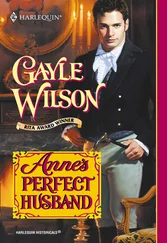Constance Woolson - Anne - A Novel
Здесь есть возможность читать онлайн «Constance Woolson - Anne - A Novel» — ознакомительный отрывок электронной книги совершенно бесплатно, а после прочтения отрывка купить полную версию. В некоторых случаях можно слушать аудио, скачать через торрент в формате fb2 и присутствует краткое содержание. Жанр: Классический детектив, foreign_detective, foreign_prose, на английском языке. Описание произведения, (предисловие) а так же отзывы посетителей доступны на портале библиотеки ЛибКат.
- Название:Anne: A Novel
- Автор:
- Жанр:
- Год:неизвестен
- ISBN:нет данных
- Рейтинг книги:5 / 5. Голосов: 1
-
Избранное:Добавить в избранное
- Отзывы:
-
Ваша оценка:
- 100
- 1
- 2
- 3
- 4
- 5
Anne: A Novel: краткое содержание, описание и аннотация
Предлагаем к чтению аннотацию, описание, краткое содержание или предисловие (зависит от того, что написал сам автор книги «Anne: A Novel»). Если вы не нашли необходимую информацию о книге — напишите в комментариях, мы постараемся отыскать её.
Anne: A Novel — читать онлайн ознакомительный отрывок
Ниже представлен текст книги, разбитый по страницам. Система сохранения места последней прочитанной страницы, позволяет с удобством читать онлайн бесплатно книгу «Anne: A Novel», без необходимости каждый раз заново искать на чём Вы остановились. Поставьте закладку, и сможете в любой момент перейти на страницу, на которой закончили чтение.
Интервал:
Закладка:
The dogs trotted cheerfully, with all their bells ringing, round to the back door. Old Pierre detested dogs, yet always fed them with a strange sort of conscientiousness, partly from compassion, partly from fear. He could never accustom himself to the trains. To draw, he said, was an undoglike thing. To see the creatures rush by the island on a moonlight night over the white ice, like dogs of a dream, was enough to make the hair elevate itself.
"Whose hair?" Rast had demanded. "Yours, or the dogs'?" For young Pronando was a frequent visitor at the hermitage, not as pupil or member of the flock, but as a candid young friend, admiring impartially both the priest and his cook.
"Hast thou brought me again all those wide-mouthed dogs, brigands of unheard-of and never-to-be-satisfied emptiness, robbers of all things?" demanded Pierre, appearing at the kitchen door, ladle in hand. Antoine's leathery cheeks wrinkled themselves into a grin as he unharnessed his team, all the dogs pawing and howling, and striving to be first at the entrance of this domain of plenty.
"Hold thyself quiet, René. Wilt thou take the very sledge in, Lebeau?" he said, apostrophizing the leaders. But no sooner was the last strap loosened than all the dogs by common consent rushed at and over the little cook and into the kitchen in a manner which would have insured them severe chastisement in any other kitchen in the diocese. Pierre darted about among their gaunt yellow bodies, railing at them for knocking down his pans, and calling upon all the saints to witness their rapacity; but in the mean time he was gathering together quickly fragments of whose choice and savory qualities René and Lebeau had distinct remembrance, and the other dogs anticipation. They leaped and danced round him on their awkward legs and shambling feet, bit and barked at each other, and rolled on the floor in a heap. Anywhere else the long whip would have curled round their lank ribs, but in old Pierre's kitchen they knew they were safe. With a fiercely delivered and eloquent selection from the strong expressions current in the Paris of his youth, the little cook made his way through the snarling throng of yellow backs and legs, and emptied his pan of fragments on the snow outside. Forth rushed the dogs, and cast themselves in a solid mass upon the little heap.
"Hounds of Satan?" said Pierre.
"They are, indeed," replied Antoine. "But leave them now, my friend, and close the door, since warmth is a blessed gift."
But Pierre still stood on the threshold, every now and then darting out to administer a rap to the gluttons, or to pull forward the younger and weaker ones. He presided with exactest justice over the whole repast, and ended by bringing into the kitchen a forlorn and drearily ugly young animal that had not obtained his share on account of the preternaturally quick side snatchings of Lebeau. To this dog he now presented an especial banquet in an earthen dish behind the door.
"If there is anything I abhor, it is the animal called dog," he said, seating himself at last, and wiping his forehead.
"That is plainly evident," replied old Antoine, gravely.
In the mean time, Anne, Tita, and the boys had thrown off their fur cloaks, and entered the sitting-room. Père Michaux took his seat in his large arm-chair near the hearth, Tita curled herself on a cushion at his feet, and the boys sat together on a wooden bench, fidgeting uneasily, and trying to recall a faint outline of their last lesson, while Anne talked to the priest, warming first one of her shapely feet, then the other, as she leaned against the mantel, inquiring after the health of the birds, the squirrels, the fox, and the tame eagle, Père Michaux's companions in his hermitage. The appearance of the room was peculiar, yet picturesque and full of comfort. It was a long, low apartment, the walls made warm in the winter with skins instead of tapestry, and the floor carpeted with blankets; other skins lay before the table and fire as mats. The furniture was rude, but cushioned and decorated, as were likewise the curtains, in a fashion unique, by the hands of half-breed women, who had vied with each other in the work; their primitive embroidery, whose long stitches sprang to the centre of the curtain or cushion, like the rays of a rising sun, and then back again, was as unlike modern needle-work as the vase-pictured Egyptians, with eyes in the sides of their heads, are like a modern photograph; their patterns, too, had come down from the remote ages of the world called the New, which is, however, as old as the continent across the seas. Guns and fishing-tackle hung over the mantel, a lamp swung from the centre of the ceiling, little singing-birds flew into and out of their open cages near the windows, and the tame eagle sat solemnly on his perch at the far end of the long room. The squirrels and the fox were visible in their quarters, peeping out at the new-comers; but their front doors were barred, for they had broken parole, and were at present in disgrace. The ceiling was planked with wood, which had turned to a dark cinnamon hue; the broad windows let in the sunshine on three sides during the day, and at night were covered with heavy curtains, all save one, which had but a single thickness of red cloth over the glass, with a candle behind which burned all night, so that the red gleam shone far across the ice, like a winter light-house for the frozen Straits. More than one despairing man, lost in the cold and darkness, had caught its ray, and sought refuge, with a thankful heart. The broad deep fire-place of this room was its glory: the hearts of giant logs glowed there: it was a fire to dream of on winter nights, a fire to paint on canvas for Christmas pictures to hang on the walls of barren furnace-heated houses, a fire to remember before that noisome thing, a close stove. Round this fire-place were set like tiles rude bits of pottery found in the vicinity, remains of an earlier race, which the half-breeds brought to Père Michaux whenever their ploughs upturned them – arrow-heads, shells from the wilder beaches, little green pebbles from Isle Royale, agates, and fragments of fossils, the whole forming a rough mosaic, strong in its story of the region. From two high shelves the fathers of the Church and the classics of the world looked down upon this scene. But Père Michaux was no bookworm; his books were men. The needs and faults of his flock absorbed all his days, and, when the moon was bright, his evenings also. "There goes Père Michaux," said the half-breeds, as the broad sail of his boat went gleaming by in the summer night, or the sound of his sledge bells came through their closed doors; "he has been to see the dying wife of Jean," or "to carry medicine to François." On the wild nights and the dark nights, when no one could stir abroad, the old priest lighted his lamp, and fed his mind with its old-time nourishment. But he had nothing modern; no newspapers. The nation was to him naught. He was one of a small but distinctly marked class in America that have a distaste for and disbelief in the present, its ideals, thoughts, and actions, and turn for relief to the past; they represent a reaction. This class is made up of foreigners like the priest, of native-born citizens with artistic tastes who have lived much abroad, modern Tories who regret the Revolution, High-Church Episcopalians who would like archbishops and an Establishment, restless politicians who seek an empire – in all, a very small number compared with the mass of the nation at large, and not important enough to be counted at all numerically, yet not without its influence. And not without its use too, its members serving their country, unconsciously perhaps, but powerfully, by acting as a balance to the self-asserting blatant conceit of the young nation – a drag on the wheels of its too-rapidly speeding car. They are a sort of Mordecai at the gate, and are no more disturbed than he was by being in a minority. In any great crisis this element is fused with the rest at once, and disappears; but in times of peace and prosperity up it comes again, and lifts its scornful voice.
Читать дальшеИнтервал:
Закладка:
Похожие книги на «Anne: A Novel»
Представляем Вашему вниманию похожие книги на «Anne: A Novel» списком для выбора. Мы отобрали схожую по названию и смыслу литературу в надежде предоставить читателям больше вариантов отыскать новые, интересные, ещё непрочитанные произведения.
Обсуждение, отзывы о книге «Anne: A Novel» и просто собственные мнения читателей. Оставьте ваши комментарии, напишите, что Вы думаете о произведении, его смысле или главных героях. Укажите что конкретно понравилось, а что нет, и почему Вы так считаете.












